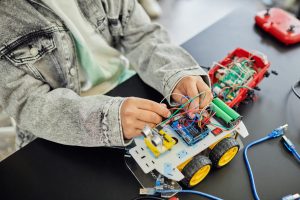The Intersection of Culture and Pedagogy in Classrooms
In today’s diverse and globalized world, classrooms are becoming increasingly diverse with students from different cultural backgrounds. This brings forth the need for educators to understand the intersection of culture and pedagogy in classrooms. Culture refers to the beliefs, values, customs, and behaviors shared by a group of individuals, while pedagogy is the approach to teaching and learning. As educators, it is important to recognize the impact of culture on students’ learning and adjust pedagogical practices accordingly. In this article, we will explore the intersection of culture and pedagogy in classrooms and its importance in creating an inclusive and effective learning environment.
Understanding the Impact of Culture on Education
Culture plays a crucial role in shaping an individual’s beliefs, behaviors, and ways of life. It not only influences an individual’s personal life but also impacts their educational experience. In classrooms, students belonging to different cultural backgrounds may bring their own set of beliefs, customs, and learning styles. As educators, it is essential to recognize and respect these differences to create an inclusive learning environment.
Cultural Responsiveness in Pedagogy
A key aspect of addressing the intersection of culture and pedagogy is through cultural responsiveness. It refers to the ability of educators to understand and adapt to the cultural backgrounds and needs of their students. This involves creating learning experiences that are relevant, meaningful, and relatable to students’ cultural identities. For instance, incorporating diverse perspectives, incorporating cultural practices into lessons, and using culturally relevant materials can create a more inclusive and engaging learning environment.
Challenges to Cultural Responsiveness
While cultural responsiveness is crucial in promoting inclusive education, there are challenges that educators may face. These include a lack of cultural awareness and sensitivity, stereotypes and biases, and limited resources and training. It is important for educators to acknowledge and address these challenges to effectively incorporate cultural responsiveness in their pedagogical practices.
The Benefits of Integrating Culture in Pedagogy
When educators incorporate cultural responsiveness in their pedagogical practices, it not only promotes inclusivity but also has several other benefits. Firstly, it creates a sense of belonging for students, which positively impacts their academic achievement and motivation. It also enhances students’ critical thinking and perspective-taking skills as they learn from diverse perspectives. Additionally, it prepares students to become culturally competent and navigate in a diverse world.
Cultural Competence in Education
Cultural competence is the ability to interact effectively with people from various cultural backgrounds. In classrooms, this means understanding and valuing the diversity of students and being able to create an inclusive learning environment. As educators, it is important to not only promote cultural competence among students but also develop it within ourselves.
The Role of Educators in Fostering Cultural Inclusivity
Educators play a crucial role in promoting cultural inclusivity in classrooms. Firstly, it is important to question and reflect on one’s own cultural beliefs and biases to effectively engage with students from diverse backgrounds. It is also essential to continuously learn and educate ourselves about different cultures. Educators should also communicate and collaborate with students and their families to understand their cultural backgrounds and needs better. By incorporating students’ cultural identities and perspectives in lessons, educators can create a more inclusive and engaging learning experience.
Conclusion
The intersection of culture and pedagogy in classrooms is crucial in promoting inclusive education. Educators should not only recognize the impact of culture on students’ learning but also be culturally responsive in their pedagogical practices. By promoting cultural competence and inclusivity, educators can create a safe and empowering learning environment for all students, regardless of their cultural backgrounds.
In conclusion, the role of culture in education cannot be ignored, and educators must strive to incorporate cultural inclusivity in their pedagogical practices. This not only benefits students but also promotes a more understanding and diverse society.










